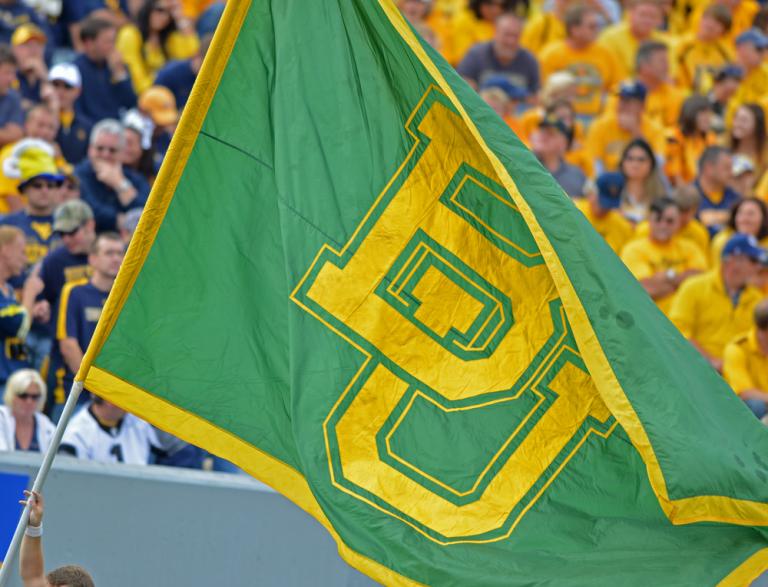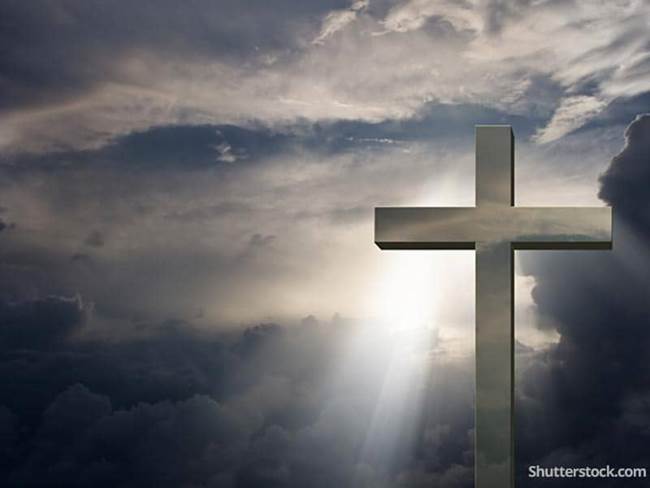By Jeffrey Scholes, University of Colorado, Colorado Springs.
If the scale and scope of the self-meted punishment that Baylor doles out is truly unprecedented in a good way, then one day the school can look back on this move with pride.

Ken Starr, dogged prosecutor of President Clinton over the Lewinsky affair, steps down as President and later as Chancellor of Baylor University over charges that his administration ignored numerous accusations of rape proffered by female students in order to protect the football team, which housed the accused. Head coach Art Briles, fervent Christian and resurrector of the football program at the largest Baptist university in the country, is forced to resign his position over findings that he also turned a blind eye to sexual violence being perpetrated by some of his players. These two real-life scenarios are perfectly set up for the charge of hypocrisy. The self-righteous Starr would have been convicted long ago under his own scrutiny, and Baylor football coaches, with its holier-than-thou swagger in the rough and tumble Big 12 conference, merely pick and choose when they want to put their Christian principles into practice, so the common response has been.
Most big time college football scandals aren’t thought of in this way. Most, like the one at Southern Methodist University in 1986, the University of Southern California in 2003, or Florida State University in 2009, involve NCAA rules violations—hardly candidates for hypocritical behavior. With winning as the only goal, coaches are almost expected to break, or at least bend to the point of breaking, some of these rules. The mother of all college football scandals, the Penn State cover-up of 2011, was made even more offensive than the acts of Jerry Sandusky by the football program’s emphasis on character and values (as evinced by the halo atop then coach Joe Paterno’s head in a downtown mural). Yet the tolerating of a child molester on the coaching staff protected the football program at a public university. The public trust was damaged, yes, but in the way that it would with the impropriety of a trusted politician. The Baylor situation is the impropriety of a trusted pastor.
That Baylor was in this vaulted place in the college football world so that it could fall so far so fast is in part due to its slow but deliberate dalliance with the secular. The severing of ties with the Baptist General Convention in 1991 to “Baylor 2012,” a plan implemented in 2002 to make Baylor a top-tier research institution, to the 2011 decision to allow 25 percent of its board to be non-Baptists—all attempts to let enough of “the world” in to earn worldly credibility while not impeding its Christian mission. And while football has always been important in Waco, the sudden success of Briles plus quarterback Robert Griffin III in 2011 left the opportunistic university with a clear choice. A new stadium was completed in 2014 and other resources funneled toward the football program helped (along with Briles’ up tempo offense) in the winning of two conference championships and the coming within striking distance of making the national four team playoff.
Baylor’s quick rise raised eyebrows around the country just as quickly. Under that Christian veneer, so many wondered, they must be doing something shady to move up the ladder past the rich neighbor to the south, the University of Texas, that fast. Well I suppose they were right, though the interplay of religion and sports and its role in Baylor’s behavior is more complex than meets the eye. For one, as has been brought to light at BYU, the Baylor honor code that requires sex to be “expressed in the context of marital fidelity” has not only prevented women from coming forward, but it has also allowed administrators from even having to hear about sexual violence because the victim is halted at the door of the language of the honor code. Or perhaps Baylor is run more like a church than a business, and it is now paying for its naiveté about the prevalence of sexual violence in the wider culture and how to handle it justly when it finds its way onto the campus.
Another way that all of this can be made sense of is through the ideological lens of Muscular Christianity that still pervades the locker room, weight room, practice fields, stadium, and recruitment strategies at Baylor and elsewhere. While its heyday was a century in the past and you probably won’t hear outright declarations that Jesus was a muscle man, you also won’t hear the weak, meek Jesus used to motivate players either. As an instrument for toughening up men (white men in particular) in what is usually believed to be an ever-increasing feminized culture, Muscular Christianity reinforces a version of masculinity by way of a kind of proof-texted biblicization of what it means to be a man. It is the Jesus tipping over tables, not washing feet.
Perhaps it was this particularly potent mix of Christianity with physically strong men who are driven to win that allowed the initial skepticism of the truth of the victims’ accusation by the coaching staff and administration. If the faith of Baylor’s coaches is primed by strength rather than weakness, competition rather than cooperation, sadly, it should come as little surprise that the women were not taken seriously. This way, the football program, which legitimates and safeguards the values of Muscular Christianity, remains intact while the “men” accused get to continue “being men.”
The religion and sports nexus is mapped onto this story in another, more personal way too. Full disclosure (though by now I’m not sure that I haven’t already disclosed this): I’m a Baylor alum and a Baylor football obsessive. Serious fans have known about the allegations dating back to 2009 and their likely basis in truth at least since last summer with the damning Texas Monthly expose and its video complement in February 2016 from ESPN’s “Outside the Lines.” Knowing the deplorable and possibly illegal actions of Baylor staff was, of course, sickening, but it also highlighted the seeming ridiculous tension felt by many diehard fans. Yes, the rapes and cover-ups were and are inexcusable and people have to pay, but does the entire program have to be torn down, we may ask privately? As SMU fans have been asking themselves for thirty years (with even more reason), does this punishment fit the crime? While the damage to the Baylor football program is still undetermined—and it’s readily admitted that the crime of Baylor far exceeds that of SMU and the punishment likely won’t compare either though maybe is should—it feels like a question that demands asking.
The firing of Briles, while certainly deserved, may have the effect of the death penalty, for he (no, not RGIII) was the alpha and likely omega of the recent success. What feels incommensurate is the time, energy, and emotion invested in a team versus the seeming quickness with which it has all gone away. This feeling, described to perfection by FSU comparative literature Professor Diane Roberts’ own grappling with this phenomenon in her book, Tribal, is a confusing one unless sports is thought of as a religion. The violence on the field and now the ignoring of it off of it—my reason says quit this “hobby,” but my “religion” then calms me down and reminds me that I can’t. I’m guessing that the stages of grief that many fans are experiencing have little to do with their traditional religious faith and more to do with the devotion they show every Saturday in the fall. It’s one of the funny things about sports fanship—you pull for people you don’t know with the kind of vigor that you may not even apply to your friends, but because of the utter lack of control that a fan has over the object of the fandom, it can all be taken away (see the Cleveland Browns) with little recourse to justice and few shoulders to cry on. To further extend the sport-as-religion trope and recall an earlier reference, the pastor of our cherished church did some horrible things but can’t we only punish him? But I digress . . .
With the clearer eyes of a scholar, I know that my blind faith in this matter is insulated by my whiteness and maleness; I have the luxury of “just being a fan” without being expected to empathize with female survivors of sexual violence or to understand the “conveyor belt” that young black athletes are placed on while the establishment uses their bodies for their own profit. Therefore, all Baylor fans who are in a state of mourning right now will do well to remember exactly how their university got here and that our emotion utterly pales in comparison to the anger felt by the silenced rape victims. If the scale and scope of the self-meted punishment that Baylor doles out is truly unprecedented in a good way, then one day the school can look back on this move with pride. Instead, if the university looks back further and chalks up the downfall of Baylor football to the inevitable result of a Faustian bargain with “the world,” it will be making a mistake. Blaming the events that led to the dismissal of rape victims in the interest of self-protection on an accommodation to the values of secular culture is a severe misplacement. Hypocrisy is easier to commit when you preach a lot. Let’s hope Baylor’s response to all of this is the first step toward putting its money where its mouth should have been all along.
 Jeffrey Scholes is Assistant Professor of Religious Studies in the Department of Philosophy and the Director of the Center for Religious Diversity and Public Life at the University of Colorado, Colorado Springs. He is the author of Vocation and the Politics of Work: Popular Theology in a Consumer Culture (Lexington 2013) and co-author of Religion and Sports in American Culture (Routledge 2014).
Jeffrey Scholes is Assistant Professor of Religious Studies in the Department of Philosophy and the Director of the Center for Religious Diversity and Public Life at the University of Colorado, Colorado Springs. He is the author of Vocation and the Politics of Work: Popular Theology in a Consumer Culture (Lexington 2013) and co-author of Religion and Sports in American Culture (Routledge 2014).













